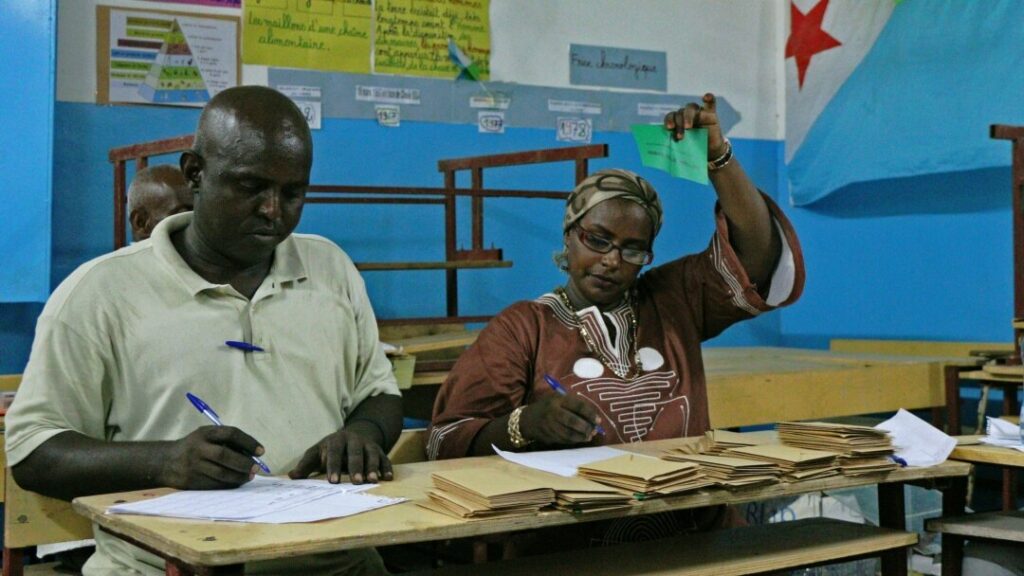Kadar Abdi Ibrahim, secretary general of the only opposition party in the running, believes that “there is no substantive debate in this legislative election”. Aden Omar Abdillahi, the head of a political research institute adds “this is the most boring election of the last 30 years”, with many opposition parties having boycotted what they call a sham election.
Read More: Thomas Sankara Laid to Rest Alongside Comrades
The Horn of Africa state of Djibouti heads to the polls on Friday for a parliamentary election boycotted by the main opposition parties, which have branded the vote a sham. Only two parties are contesting seats in the 65-member National Assembly, where veteran President Ismael Omar Guelleh’s ruling Union for Presidential Majority is assured of victory. Despite its diminutive size, Djibouti enjoys a strategically crucial position at the mouth of the Red Sea, using it to woo trade investors and foreign military powers.
The opposition charges that the poll, which follows a presidential ballot in April 2021 that saw Guelleh re-elected for a fifth term with 97 percent of the vote, will not be free and fair. The economy took a hit in 2022 from the war in Ukraine, a regional drought and fallout from the two-year conflict in neighboring Ethiopia, but is expected to grow by around five percent this year, according to the International Monetary Fund.
The main opposition parties, including the Movement for Democratic Renewal and Development (MRD) and the Republican Alliance for Democracy have announced they will not take part. Djibouti’s 230,000 voters will choose MPs for a five-year term, with the law stipulating that 25 percent of the 65 seats must go to women.
Read More: Expands Access to Free Education Throughout the Country
In the last legislative ballot in 2018, the UMP — which emerged from a party that ruled Djibouti since independence from France in 1977 — won 58 seats. The Union for Democracy and Justice, the only other party running on Friday, took five of the remaining seven. The Intergovernmental Authority on Development, a regional bloc, said it would be sending an observer mission.
